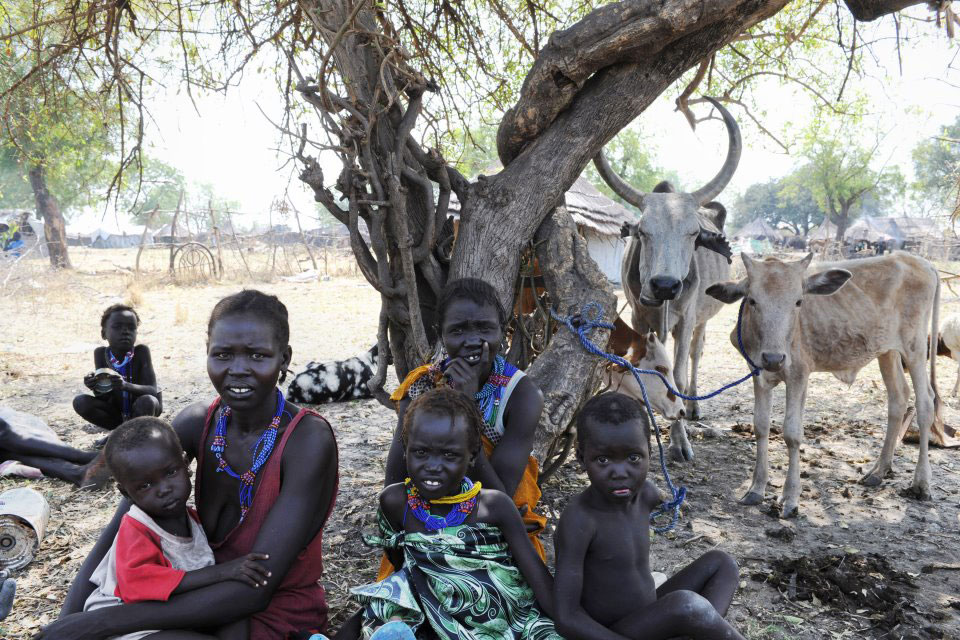Jonglei: Suspected Murle raiders kill a man in Pariak
October 1, 2012 (BOR) – At least one person is reported dead and another boy abducted from Pariak and Panwell in Jonglei according to police services.

At 4.00pm on Sunday a number of armed raiders looted cattle and killed Gai Dot Gai when he went to the nearby forest to collect firewood.
The recent incident is a violation of the communal peace accord signed between the six tribes of Jonglei to bring an end to tribal conflict caused by cattle raiding and child abduction.
Dot was killed by the criminals who went away with an unverified number of cattle according to police sources at Pariak.
Bor county youth leader, Thon Ayuen, who visited the area with the commissioner, blamed the government for failing to disarm the Murle community, saying that armed Murle are attacking the “vulnerable” Dinka Bor citizens.
According to Ayuen, his county has lost 548 herds of cattle to Murle raiders on 22 September and 23 September.
He said the cattle were stolen in two places; Jale village of Alian lost 488 cattle and 60 cattle in two consecutive days last week.
Ayuen said the raiders were trailed to Bainyith village of Gumuruk payam [district] of Pibor county. He said that the Murle community, via the state government, have been asked to compensate those raided.
On September 23, Bor county handed over more than 400 heads of cattle in compensation for the cattle stolen by raiders from Koschar village of Bor county in August.
Last week, Bor county MPs asked the government to apprehend the criminals and bring them to justice.
The officers who attended the scene of the incident found the corpse of one of the alleged raiders. A police source said “the raiders must have killed him” during their haphazard shooting. The source also said that the scarification on the face and abdomen of the corpse is consistent with that of a warrior.
In the related development, on Monday at about 9:30 am a boy of 11 years. Mabior Abuoi Akuei was abducted by a group of “suspected Murle” in Panwei village next to Pariak, according to Bor county information officer, David Alier, who spoke on behalf of the commissioner.
Attempts made by the county police to rescue the abducted child ended in vain.
The long-running tribal conflict in the region has resulted in widespread displacement of its citizens.
There has been scant information from the Murle Diaspora and the Murle in South Sudan on their perspective of the conflict, unlike the vocal Luo-Nuer who claim that the Murle have been driven to abducting their children as they are suffering from an infertility endemic; a view shared by Kiir.
According to the UN Environmental Program the Murle were in Ethiopia until the 19th century. Some remained their until the 1990s while others were driven west by local Nilotes. They established an homeland in Pibor county, Jonglei state in the 1930s, since which, environmental pressures have impinged upon their pastoralist lifestyle.
Little evidence can be found to support the infertility claim. However, the motivation to rationalise the denigration of one of South Sudan’s pariah ethnic groups, in order to legitimise the attribution of blame, is self-evident.
The notable Murle rebel leader, David Yau Yau, signed a peace deal with Juba government in June 2011. However, there are allegations that Yau Yau is involved in the current Jonglei insecurity which has led to the Médecins Sans Frontières humanitarian organisation evacuating the area.
In March, the president of South Sudan, Salva Kiir ordered the comprehensive disarmament in Jonglei in all the counties to eliminate illegal guns in the hands of civilians.
In April, the president appointed 23-member peace commission, under the leadership of Archbishop Daniel Deng Bul, to initiate peace talk in Bor that would bring all the six tribes of Dinka Bor, Nuer, Murle, Anuak, Jie and Kachipo.
In May a peace was signed by traditional leaders of the six tribes, with the recommendations that all abducted children should be returned to their families.
(ST)
